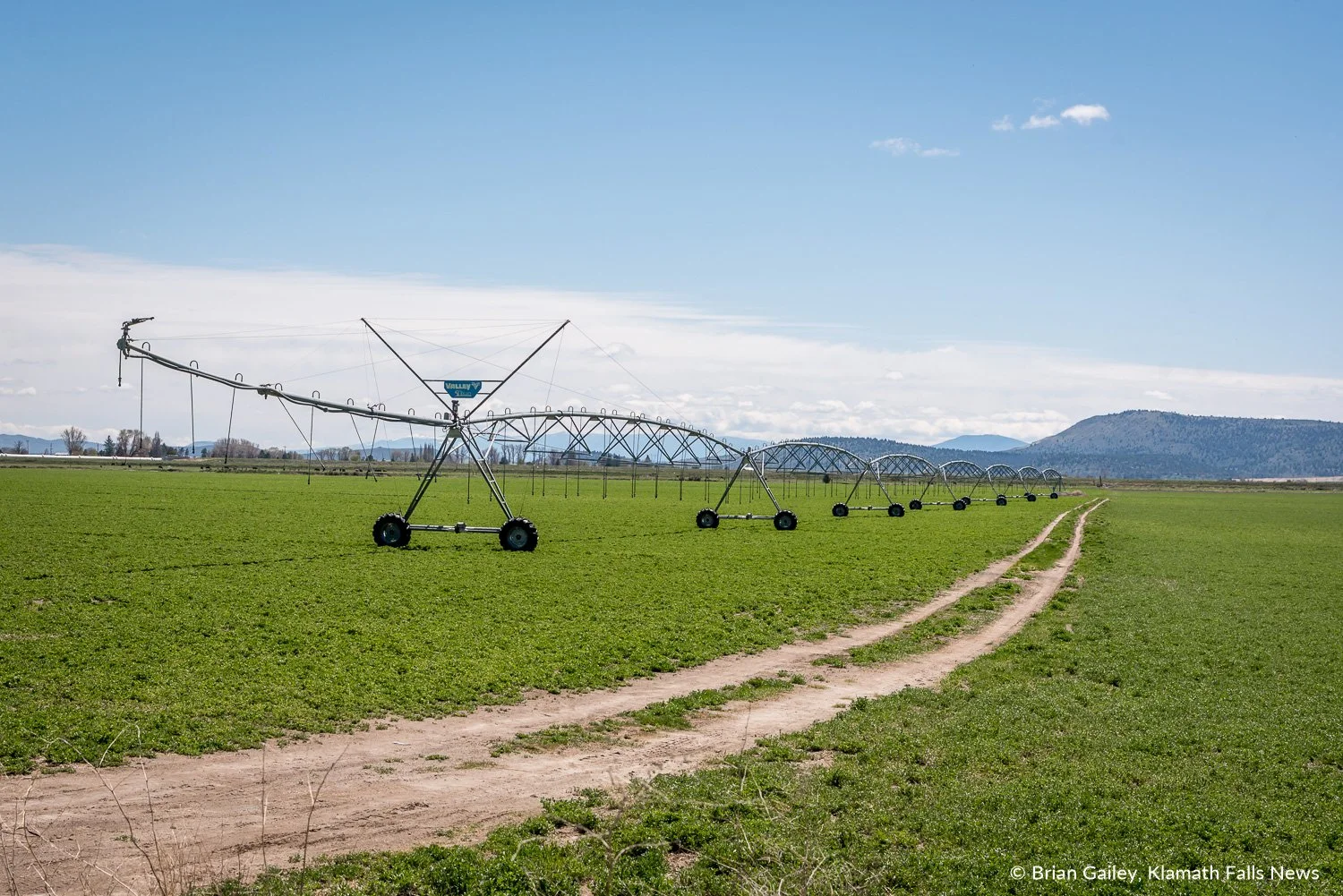Project Irrigators "look forward to fair fight" on Upper Klamath Lake elevations and fish populations
/File photo
The following is a press release from the Klamath Water Users Association.
KLAMATH FALLS, Ore. - Klamath Project irrigators received good news on June 7. Judge Stephen Bushong, who is conducting the judicial phase of the Klamath Basin water rights adjudication, confirmed that the irrigation districts in the Project would be able to put on an evidentiary case opposing water rights claims for high Upper Klamath Lake elevations for the benefit of fish.
The ruling implements one aspect of the 2010 Klamath Basin Restoration Agreement (KBRA). Under that agreement, Project irrigators agreed to stand aside during the administrative phase of the water rights adjudication, allowing the Klamath Tribes and the United States to pursue whatever water right in Upper Klamath Lake they sought without opposition from Project interests.
In exchange, the United States and Klamath Tribes agreed that any administratively approved water right could not be asserted to curtail irrigation diversions. The parties additionally agreed that if the overall KBRA fell through and was not fully implemented, Project irrigators would be able to challenge the Upper Klamath Lake claims during the judicial phase of the adjudication, and only a water right adjudicated in that phase could ever be asserted against the Project.
Although the KBRA was terminated in 2016 due to the lack of congressional approval, this certain aspect of the KBRA remained in effect. Despite unanticipated opposition from the Klamath Tribes and the United States, the adjudication court has ruled that the Project water users will be able to put on an evidentiary case.
Luther Horsley, Klamath Project Irrigator
This is a welcome development for the Project, particularly since the technical issues overlap with those involved in the ESA of Project diversions. Currently, Reclamation is required to maintain certain elevations in Upper Klamath Lake for endangered suckers based on the opinion of the USFWS. Irrigation water users dispute the basis for those opinions but have few options to challenge “the science.”
“I just look forward to a fair fight,” said Luther Horsley, a Project irrigator who chairs the irrigation districts’ adjudication steering committee. “Under the ESA regulation, there is no real accountability or recourse for unjustified decisions. Now, we will have an outside, neutral decisionmaker hearing evidence that we think is important.”
The evidentiary hearing will take place before an administrative law judge, probably sometime in 2024 at the earliest. “We have a very impressive team of scientific experts and are excited to be able to bring forth their evidence,” said Horsley.



